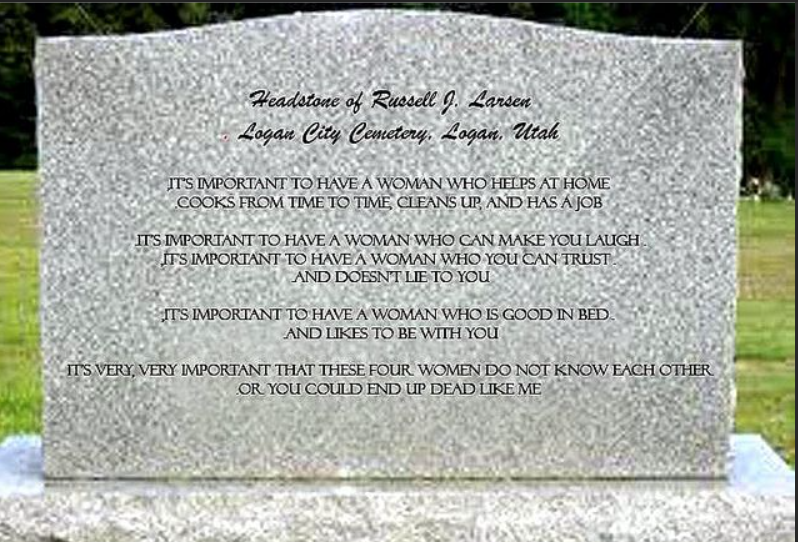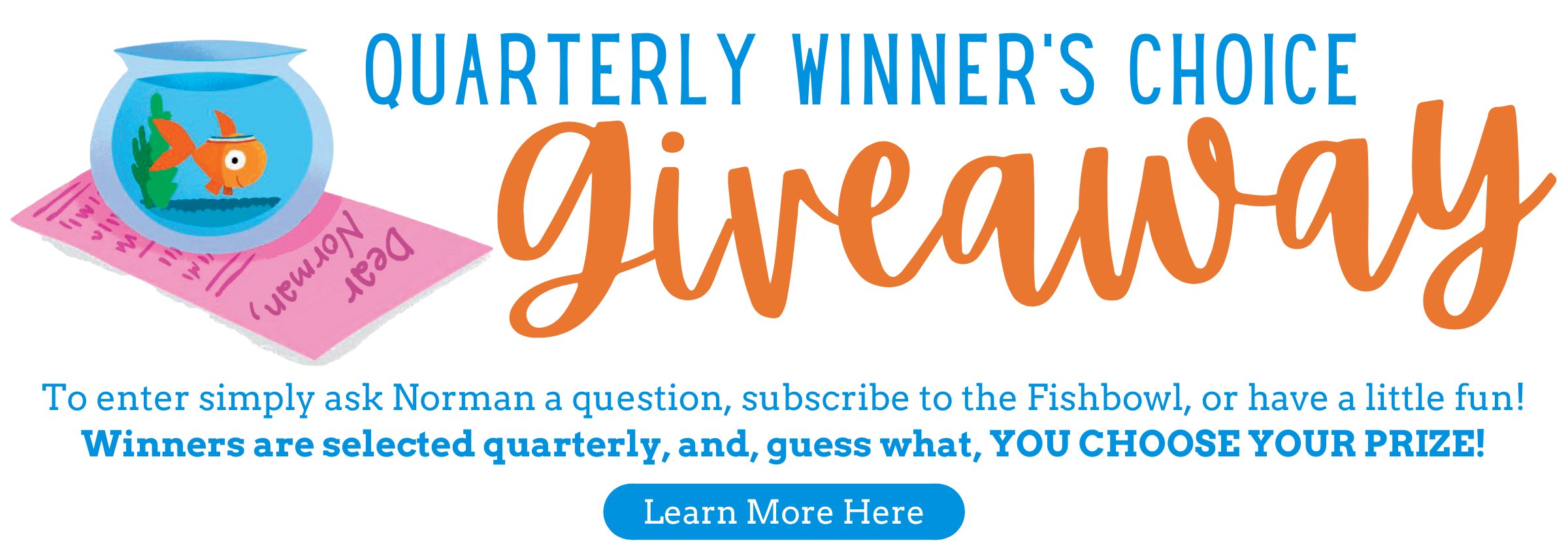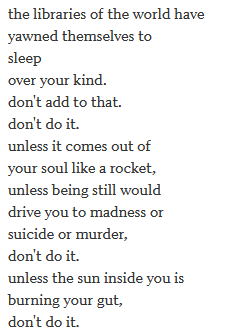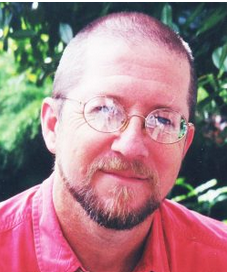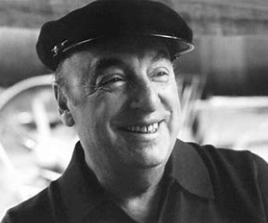Poetry Challenge #310-After Life
Any poet deemed stamp worthy by the U.S Postal Service is certainly deserving of a birthday shout out. Even if it’s only a six-cent stamp, issued in 1970. Seriously, in 1970 what could one mail for 6 cents? Ghost written letters…
Happy Birthday Edgar Lee Masters (August 23, 1868 – March 5, 1950).
Spoon River Anthology, by Edgar Lee Masters was published in 1915, and was both a masterpiece and scandalous—that era’s Peyton Place. It contained over 200 poems, each a comment from the dead in a graveyard in a small, midwestern town.
The poems wailed about unfairness, condemned other occupants of the cemetery, and scandalized husbands and wives and lovers. The poems were written in free verse which had still not been widely accepted at the time.
One critic called it “shredded prose.”
A few of the poems in Master’s Spoon River Anthology are about real people, but most of the characters were created using names Masters gathered in cemeteries in a couple Illinois towns. He mixed first names from one cemetery with last names from another before writing his imagined comments from the grave. The example below was based on Masters’ pioneering grandmother.
In case you’re wondering, here’s what Edgar Lee Master’s looked like…perhaps when skulking around graveyards or peeping in windows…. I just made that last bit up. A bit of gossip… (But this photo is real, filched from Google Images.)
“How shall the soul of a man be bigger than the life he lived?”—Edgar Lee Masters
Poetry Challenge #310
After Life
If you can, wander around an old graveyard and collect names and epitaphs. Mix them together and use the name you come up with as the title of your poem. Write your poem as though this made-up person is talking. You can include an epitaph if you want.
Set Your Timer for 7 Minutes
Start Writing!
Don’t Think About it, Write It!
Cindy Faughnan and I began this 7-Minute Poetry Challenge 2600+ days ago. Now we take turns creating prompts to share with you. Our hope is that creatives—children & adults—will use our prompts as springboards to word play time. If you join us in the Challenge, let us know by posting the title, a note, or if you want, the whole poem in the comments.
Click on Fishbowl link and sign up to receive email notifications from Kelly's blog (aka The Fishbowl):
All who subscribe, comment or share a poem will be entered in . . .
Poetry Challenge #309-Don't Do it!
“Nice” and “Pretty” are two words no one EVER used to describe Charles Bukowski’s poetry.
Born Aug 16th makes Bukowski a Leo, a lion, a sunny Sun sign. He was anything but.
He was depressed, moody, drank, smoked, and quit writing altogether mid-career, a time he called his “ten year drunk” because he couldn’t sell any of his writing.
All that being said, only reading “nice pretty” poetry would be like only watching cartoons…
“The Laureate of American lowlife.”-Time Magazine, 1986.
Here’s a personal favorite. “Raw with Love,” by
Charles Bukowski was born in Germany, on August 16, 1920, the only child of an American soldier and a German mother.
At the age of three, the family moved to the U.S. he grew up in Los Angeles. His was a miserable childhood. After a few years of college, he dropped out and moved to NYC to be a writer. At the age of 24 his first short story was published, and then nothing. He went to work for the post office.
Quitting writing for a decade chewed Bukowski up, mentally and physically. After almost dying from a bleeding ulcer, Bukowski began writing again—poetry this time. He was 35 when his first poetry and then an underground newspaper column that led to a publishing contract in 1969.
Tough as he was, Bukowski felt and hurt and showed it. Here’s another by Charles Bukowski, titled “For Jane”
When he died in 1994, of leukemia, Bukowski was a popular author and performing poet and author of more than 45 books of poems and prose.
“Without trying to make himself look good, much less heroic, Bukowski writes with a nothing-to-lose truthfulness which sets him apart from most other ‘autobiographical’ novelists and poets,”— Stephen Kessler in the San Francisco Review of Books
Poetry Challenge #309
Don’t Do IT!
Near and dear to my heart is Bukowski’s poem “So You Want to Be a Writer” . Here’s a snippet plucked from the ending. (After taking the challenge, click the link to read the rest.)
“So You Want to Be a Writer” is essentially a letter to wanna-be writers listing wrong reasons you might have for wanting to be a writers ending with Don’t Do it!
Following Bukowski’s lead, write a warning poem listing pros and cons for pursuing that vocation.
First fill in the blank with an occupation/vocation, it could be anything from Butcher, Baker, Doctor, Ski Diver, Magician, Mountain Climber…
So You Want to Be a _______________
Repeat the phrase Don’t Do it! Or Do it! several times in the poem.
Set Your Timer for 7 Minutes
Start Writing!
Don’t Think About it, Write It!
Craving more poems by Charles Bukowski? Click over to An Introduction to Charles Bukowski in Eight Poems with explanations from culturetrip.com.
Cindy Faughnan and I began this 7-Minute Poetry Challenge 2600+ days ago. Now we take turns creating prompts to share with you. Our hope is that creatives—children & adults—will use our prompts as springboards to word play time. If you join us in the Challenge, let us know by posting the title, a note, or if you want, the whole poem in the comments.
Click on Fishbowl link and sign up to receive email notifications from Kelly's blog (aka The Fishbowl):
All who subscribe, comment or share a poem will be entered in . . .
Poetry Challenge #308-Regular People
Philip Larkin (1922-1985) was a well-known and well-liked English poet. He wrote only four short books of poetry, but they were written in a way that spoke to regular people—even people who thought they didn’t like poetry.
“Poetry from which even people who distrust poetry, most people, can take comfort and delight,”—X.J. Kennedy, New Criterion.
Larkin’s collections, published once a decade, include The North Ship (1945), Less Deceived (1955), The Whitsun Weddings (1964), and High Windows (1974).
He was one of post-war England’s most famous poets and was commonly referred to as “England’s other Poet Laureate,” but eschewed the opportunity to be the Poet Laureate because he shied away from attention.
Larkin used the tools of poetry such as rhyme, rhythm, and stanzas to explore everyday fears people are faced with. “The Mower” dealt with death:
You can guess the subject of this poem by it’s title, “Days”? (That’s the way with many of Larkin’s poems.) “Days” was written in 1953 and included in Larkin’s The Whitsun Weddings.
Poetry Challenge #308
Regular People
Think of a fear people face today and write a short poem examining it.
Try using rhythm or rhyme and give advice if you want!
Set Your Timer for 7 Minutes
Start Writing!
Don’t Think About it, Write It!
Other poems by Philip Larkin can be found at the Poetry Foundation website. *Warning, Larkin’s poetry should come with an R rating.
Cindy Faughnan and I began this 7-Minute Poetry Challenge 2600+ days ago. Now we take turns creating prompts to share with you. Our hope is that creatives—children & adults—will use our prompts as springboards to word play time. If you join us in the Challenge, let us know by posting the title, a note, or if you want, the whole poem in the comments.
Click on Fishbowl link and sign up to receive email notifications from Kelly's blog (aka The Fishbowl):
All who subscribe, comment or share a poem will be entered in . . .
Poetry Challenge #307-Paradise!
Paradise Lost! Paradise Found! There are as many ideas of paradise as there are people. When James Baldwin is mentioned, it’s definitely The underside of paradise that comes to mind.
James Baldwin was born on August 2, 1924, in Harlem, New York. A poet, playwright, novelist, he’s known for writing unflinchingly about the racism, race relations and what it’s like to be Black in America.
He found freedom as a human, and an author, after moving to Paris on a fellowship. A move, he noted, that allowed him to write more about his personal and racial background.
"Once I found myself on the other side of the ocean, I see where I came from very clearly...I am the grandson of a slave, and I am a writer. I must deal with both," —Baldwin, NY Times
James Baldwin’s first novel, Go Tell it on the Mountain, was published in 1953.
"Mountain is the book I had to write if I was ever going to write anything else. I had to deal with what hurt me most. I had to deal, above all, with my father.”
While James Baldwin is perhaps best-known for his essays and books such as Nobody Knows My Name, More Notes of a Native Son, and The Fire Next Time, he also wrote poetry.
This poem, “Le Sporting-Club de Monte Carlo,” Baldwin wrote for Lena Horne
In light of the freakish frightening weather patterns—including the torrential flooding in Vermont—the adage “be careful what you wish for,” came to mind after reading Baldwin’s untitled poem:
Poetry Challenge #307
Paradise!
As shown in Baldwin’s poem “Paradise” (above) everyone has their own idea of paradise.
Bonnie Raitt song, “Who But a Fool” written by Tom Snow & Nan O'Byrne has another version. The song begins: Paradise /I’ve got a man who loves me/in this life, puts no one else above me/it’s paradise…
What’s your idea of Paradise?
Aug 2 is National Ice Cream Sandwich Day—for some that might just be it!
The Saturday Review noted the success of Baldwin’s writing was that it “possesses a crystal clearness and a passionately poetic rhythm that makes it most appealing.”
Write a poem about one kind of Paradise.
Do as Baldwin would and define it with “crystal clearness” and “poetic rhythm.”
Set Your Timer for 7 Minutes
Start Writing!
Don’t Think About it, Write It!
Cindy Faughnan and I began this 7-Minute Poetry Challenge 2600+ days ago. Now we take turns creating prompts to share with you. Our hope is that creatives—children & adults—will use our prompts as springboards to word play time. If you join us in the Challenge, let us know by posting the title, a note, or if you want, the whole poem in the comments.
Click on Fishbowl link and sign up to receive email notifications from Kelly's blog (aka The Fishbowl):
All who subscribe, comment or share a poem will be entered in . . .
Poetry Challenge #306-Can You Haiku?
Happy Birthday to Jim Kacian (July 26), haiku poet and co-founder of The Haiku Foundation which has wonderful resources that might spark your own haiku ideas.
He’s written sixteen books of poetry, fourteen of which are dedicated to haiku or haiku-related genres.
Jim Kacian is also owner and publisher of Red Moon Press.
While Haiku is serious poety, it doesn’t have to be serious.
Check out the “Outside the Box” Haiku Comics like the strip below by Jessica Tremblay.
Find more comics, stories and conversations on the Haiku Foundation website:
“Haiku, like any viable art, is shifting continuously, and what will emerge in the future can only be guessed at. But it is safe to say that it has become a viable, popular form of literature throughout the world, capable of being written, shared and appreciated by many cultures, in their different ways, in all parts of the world”—Jim Kacian
To experience some of Jim Kacian’s work, and for Haiku inspiration click on Long After (below) and keep clicking through the pages. It’s way cool!
Poetry Challenge #306
Can You Haiku?
In honor of Mr. Kacian’s birthday, write haiku-like poems: 3 lines, 5-7-5 syllables, don’t rhyme, about nature. Don’t be afraid to break every one of the rules!
How many haiku can you write in 7 minutes?
Set Your Timer for 7 Minutes
Start Writing!
Don’t Think About it, Haiku!
Cindy Faughnan and I began this 7-Minute Poetry Challenge 2600+ days ago. Now we take turns creating prompts to share with you. Our hope is that creatives—children & adults—will use our prompts as springboards to word play time. If you join us in the Challenge, let us know by posting the title, a note, or if you want, the whole poem in the comments.
Click on Fishbowl link and sign up to receive email notifications from Kelly's blog (aka The Fishbowl):
All who subscribe, comment or share a poem will be entered in . . .
Poetry Challenge #305-Stick Out Your Tongue Eve!
A name’s a noun a proper noun, laugh so hard it knocks you down.
I learned that jaunty jingle when I was a kid. I hope my teacher also taught us other parts-of-speech jingles, but “Name’s a Noun” is the only one that stuck, and after reading about Eve Merriam, I can imagine her writing it.
Eve Merriam, July 19, 1916-1991, said she didn’t choose poetry; poetry chose her. She said it was the rhythmic rhymes—those jingles!
What endeared Merriam to me especially is that it was musicals— Gilbert and Sullivan albums her brother played—that set her off.
She began writing poems when she was seven or eight years old and never stopped—nor did she stop writing poetry for children. Eventually Merriam became fashion copy editor for Glamour magazine. In the meantime, her first collection of adult poetry, entitled Family Circle, won the 1946 Yale Younger Poets Prize.
“Out Loud” was Merriam’s mantra. She maintained that no one learns to love poetry without hearing it read out loud ...
“If we can get teachers to read poetry, lots of it, out loud to children, we'll develop a generation of poetry readers; we may even have some poetry writers, but the main thing, we'll have language appreciators.”
"Whatever you do, find ways to read poetry. Eat it, drink it, enjoy it, and share it."-Eve Merriam
Listen to Eve Merriam’s poem “Weather” read-aloud and discussion by Tavis du Preez: Weather by Eve Merriam - YouTube
Poetry Challenge #305
Stick Out Your Tongue Eve!
Choose a noun that tickles your funny bone. Purple…Bumbershoot…Parsnip…Bloomers…maybe Tongue. (After all, July 19 is “Stick Out Your Tongue Day”).
With that word as the title, play with the word, bounce it around, roll it, twist and tangle it and others into a playful romp of a read-aloud poem.
Set Your Timer for 7 Minutes
Start Writing!
Don’t Think About it, Write It!
Cindy Faughnan and I began this 7-Minute Poetry Challenge 2600+ days ago. Now we take turns creating prompts to share with you. Our hope is that creatives—children & adults—will use our prompts as springboards to word play time. If you join us in the Challenge, let us know by posting the title, a note, or if you want, the whole poem in the comments. (The link to comments is below to the left of the heart.)
Click on Fishbowl link and sign up to receive email notifications from Kelly's blog (aka The Fishbowl):
All who subscribe, comment or share a poem will be entered in . . .
Poetry Challenge #304-Pablo's Tuna is Your_________
Pablo Neruda was born July 12, 1904, in Parral, Chile. He is called the “most influential Latin poet of the 20th century.”
He became a published poet at age 13.
His father opposed his interest in writing and literature, but . . .
by age 16 he was writing poetry full-time.
In 1971, he won a Nobel Prize in Literature "for a poetry that with the action of an elemental force brings alive a continent's destiny and dreams."
“I want to do with you what spring does with cherry trees.”—”
In the U.S., Pablo Neruda is mainly known for his love poems and odes translated from Spanish.
For example, his Ode to a Large Tuna in the Market honors the food we eat, comparing the tuna to a torpedo, a well-oiled ship, and the only true machine of the sea.
Poetry Challenge #304
Pablo’s Tuna is Your ?
Read Neruda’s poem, “Ode to a Large Tuna in the Market” and then think about a visit to the market and a food you want to honor.
Write an ode to this food, speaking directly to it.
Use similes and strong verbs to show how much you appreciate it.
Set Your Timer for 7 Minutes
Start Writing!
Don’t Think About it, Write It!
Cindy Faughnan and I began this 7-Minute Poetry Challenge 2400+ days ago. Now we take turns creating prompts to share with you. Our hope is that creatives—children & adults—will use our prompts as springboards to word play time. If you join us in the Challenge, let us know by posting the title, a note, or if you want, the whole poem in the comments.
Click on Fishbowl link and sign up to receive email notifications from Kelly's blog (aka The Fishbowl):
All who subscribe, comment or share a poem will be entered in . . .
Poetry Challenge #303-Astonish Cocteau
A crusty loaf, bottle of wine and summertime—feels like France! And so, with no further ado, let’s tip our jaunty red berets to Jean Cocteau, born July 5, 1889. Bon Anniversaire!
If the name sounds familiar, it should. Jean Cocteau (pronounced Zahn Kaw-toh), poet, novelist, designer, dramatist, filmmaker, artist, and playwright “was among the best, most multi-talented artists of the 20th century.” -artnet
Cocteau started writing at the age of 10, and, by age 16, was already an established poet! At the age of 19, Cocteau published La Lampe d’Aladin, his premier compendium of poems. Quel Magnifique!
Regardless the medium/genre, Cocteau said all of his creations were essentially poetry.
The ballet, Parade, is Cocteau, written with composer Erik Satie, painter Pablo Picasso, choreographer Leonide Massine, and Sergei Pavlovich Diaghilev of the Russian Ballet. The story goes that Cocteau and Diaghilev were walking down the street one day (sounds like a joke set up, right?) when Cocteau mustered up his courage to ask why the founder of Ballets Russes was so reserved in his comments on Cocteau’s work. As the story goes, Diaghilev adjusted his monocle and said: “Astonish me.”
From those 2 words “Astonish me”
Parade, considered the first modern ballet was born.
Poetry Challenge #302
Astonish Cocteau!
As Cocteau said, all his work was poetry, let’s use one of his drawings as inspiration for a poem. Write a poem inspired by one Cocteau’s drawing Cantate (above) or another—google Jean Cocteau’s art, it’s worth the trip.
Study the drawing for a bit and write a poem inspired by it. Is there something in the image—the form, the subject, a feeling—or the feeling it evokes in you—that’s astonishing?
Set Your Timer for 7 Minutes
Start Writing!
Don’t Think About it, Write It!
Cindy Faughnan and I began this 7-Minute Poetry Challenge 2600+ days ago. Now we take turns creating prompts to share with you. Our hope is that creatives—children & adults—will use our prompts as springboards to word play time. If you join us in the Challenge, let us know by posting the title, a note, or if you want, the whole poem in the comments.
Click on Fishbowl link and sign up to receive email notifications from Kelly's blog (aka The Fishbowl):
All who subscribe, comment or share a poem will be entered in . . .








